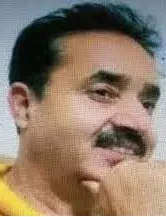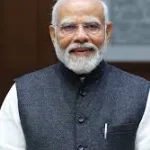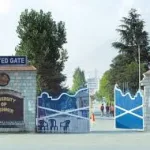Every generation comes into the world carrying both its own wounds and its own weapons. For those who stand today at the cusp of adulthood—known widely as Generation Z—the greatest inheritance is not wealth or privilege, but exposure. Born into a world where truth flickers across screens and lies unravel in real time, they have become the first true generation of transparency. They did not learn transparency as a borrowed virtue from their elders; rather, it is the environment they grew in, as natural to them as breath, as expected as sunrise.
Gen Z is not dazzled by the sheen of authority. They have seen politicians topple in scandals, corporations collapse under fraud, and institutions once revered lose all credibility. Their childhoods were filled with the noise of leaked cables, viral videos of injustice, hashtags calling out hypocrisy. Unlike the generations before them, who often lived within the shadows of controlled narratives, they grew up with an open door into the machinery of power. For them, authenticity is not an aspiration—it is a demand. Anything less feels like betrayal.
This insistence on transparency manifests in all spaces of life. In the brands they support, they demand ethical sourcing, honesty in advertisements, and a commitment to climate responsibility. In workplaces, they want clear communication, fair treatment, and accountability from those at the top. In governments, they want leaders whose promises are not drowned in rhetoric but measured against action. Transparency for them is not a slogan but a litmus test, separating those who deserve loyalty from those who deserve rejection.
But awareness alone does not define this generation. Awareness is merely the soil; action is the harvest. When injustice, corruption, or tyranny crosses their path, Gen Z has repeatedly shown that they will not be silent spectators. They possess not only the conviction to protest but also the tools to make their protests impossible to ignore. A single image captured on a phone can ignite an entire movement; a single tweet can dismantle carefully constructed lies; a single video streamed live can expose what decades of silence tried to bury. This is their strength: the marriage of conscience with connectivity.
Across Asia, one finds striking examples of this restless courage. In Hong Kong, it was the young—school students and university-goers—who filled the streets, demanding freedom from an encroaching authoritarian order. They crafted digital maps, organized leaderless marches, and used social media to stay one step ahead of surveillance. In Myanmar, when democracy was crushed by a military coup, it was again the youth who became the loudest voices of resistance, standing unarmed against guns with the sheer moral power of defiance.
In Sri Lanka, it was the anger of young people that stormed into the very palaces of privilege when corruption and economic mismanagement brought the country to collapse. They showed that when institutions fail, a generation can rise as the institution itself—the moral conscience of a nation.
Nepal, cradled in the Himalayas, offers perhaps the most poignant reflection of this generational awakening. A land of immense beauty and deep cultural heritage, Nepal has for decades been scarred by political instability, corruption, and the recycling of leaders who promise transformation but deliver inertia. For the youth of Nepal, many of whom see migration as the only path to survival, the disappointment is heavy. Yet disappointment is only half their story. The other half is their refusal to accept decay as destiny.
In recent years, Kathmandu’s streets and university squares have witnessed gatherings of young Nepalis raising voices against corruption and demanding jobs, transparency, and leadership that is accountable to its people. Their frustration is not merely economic—it is existential. They see their country rich in rivers, mountains, and history, yet poor in governance. They watch leaders make pacts in smoke-filled rooms while unemployment drives thousands to foreign shores. They are beginning to recognize that silence fattens corruption, and that without their intervention, the cycle of betrayal will never break.
The situation in Nepal today is a mirror reflecting both the peril and the promise of Gen Z’s power. On one hand, the frustration of young people can boil into anger that threatens to destabilize fragile institutions. On the other, if channeled wisely, it can become the greatest force of renewal the country has seen. The youth movements in Nepal are not asking for charity; they are demanding dignity. They are not content with reforms that scratch the surface; they want deep cleansing of a political culture that has normalized corruption. And like their peers across Asia, they are ready to employ the arsenal of technology and collective mobilization to achieve it.
The world underestimates this generation at its own peril. They are not simply inheritors of history but editors of it. Where their parents often compromised with injustice, they are inclined to confront it. Where earlier generations whispered discontent in closed rooms, they amplify it across continents. They have within them a fierce impatience, born from watching time wasted by leaders who spoke of progress while living in palaces of privilege. That impatience, when directed, can move mountains.
One might recall here the words of the poet W.B. Yeats: “The best lack all conviction, while the worst are full of passionate intensity.” For long, it seemed as if the young were the passive “best,” while the corrupt wielded their intensity with impunity. But Gen Z has inverted this prophecy. They bring conviction to the table, and they bring intensity too. They are unwilling to remain bystanders while their futures are bartered away. Their intensity, however, is not one of destruction alone but of reconstruction—an insistence that democracy must be real, that justice must be lived, and that words must be anchored in deeds.
The question, then, is not whether Gen Z is capable of turning against injustice, but what the world will look like when they do so fully. If the movements in Hong Kong, Myanmar, Sri Lanka, and Nepal are early chapters, the book ahead promises to be one of immense upheaval. Yet upheaval is not always to be feared. Out of upheaval can come clarity, and out of clarity can come rebirth. Transparency, after all, does not simply expose—it purifies.
There is, of course, a warning embedded in this tale. The same fire that illuminates can also consume. If leaders continue to ignore the voices of youth, if they dismiss their calls for honesty as naïve or disruptive, they risk pushing this generation from reform to revolt. When young people lose faith not only in leaders but in the very possibility of leadership, they may decide to dismantle structures rather than redeem them. That path, once taken, leaves scars that no generation wishes to inherit.
Yet perhaps the hope of our age lies precisely in this: that a generation so devoted to transparency, so connected to one another, and so unafraid of challenging power, will not let the old world’s corruption suffocate the new. In the quiet resolve of a Nepali student marching for justice, in the digital courage of a Hong Kong protester, in the resilience of a young Sri Lankan demanding accountability, one finds not just resistance but rebirth.
Gen Z is not waiting for permission. They are not seeking validation. They are rewriting tomorrow with their own vocabulary—one of honesty, inclusivity, justice, and courage. The world would be wise to listen, for these are not murmurs that fade with time. They are thunder rolling from the mountains, demanding a storm to cleanse the valley. In their transparency lies their power, and in their power lies the possibility of a future where corruption is no longer destiny but memory.
(Author is RK Columnist and can be reached at: [email protected])






